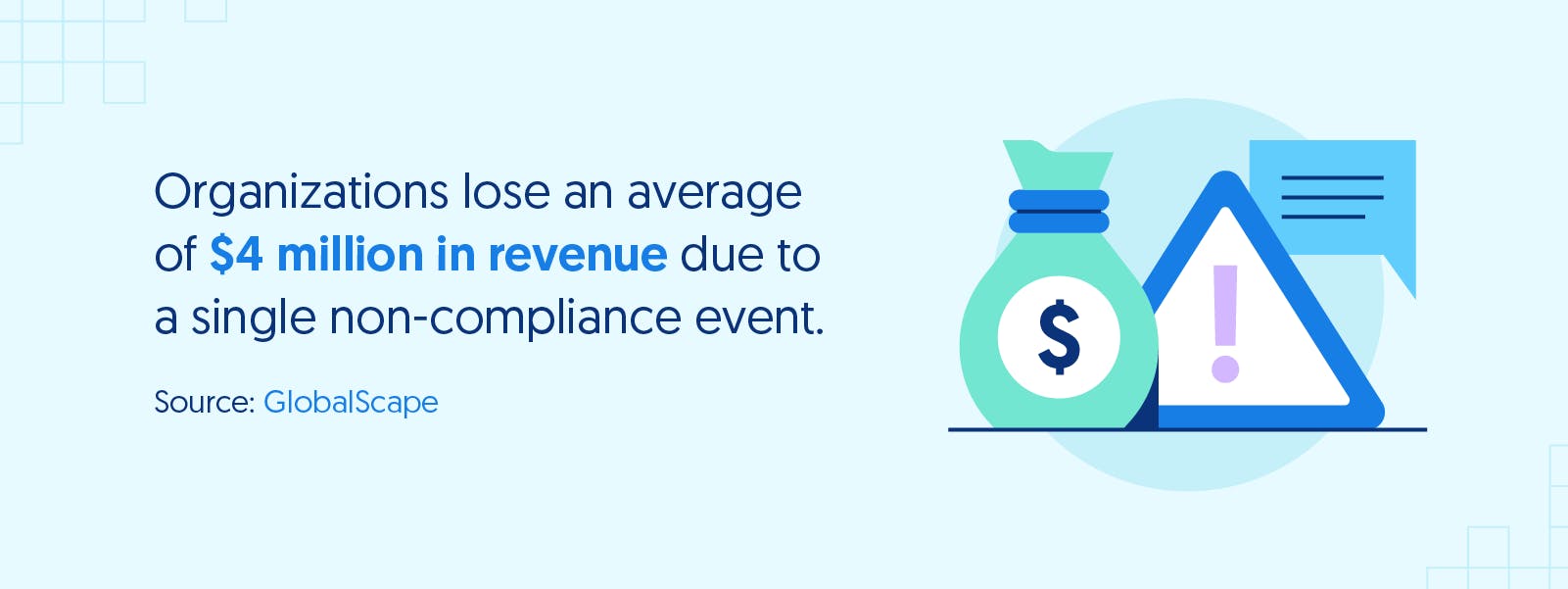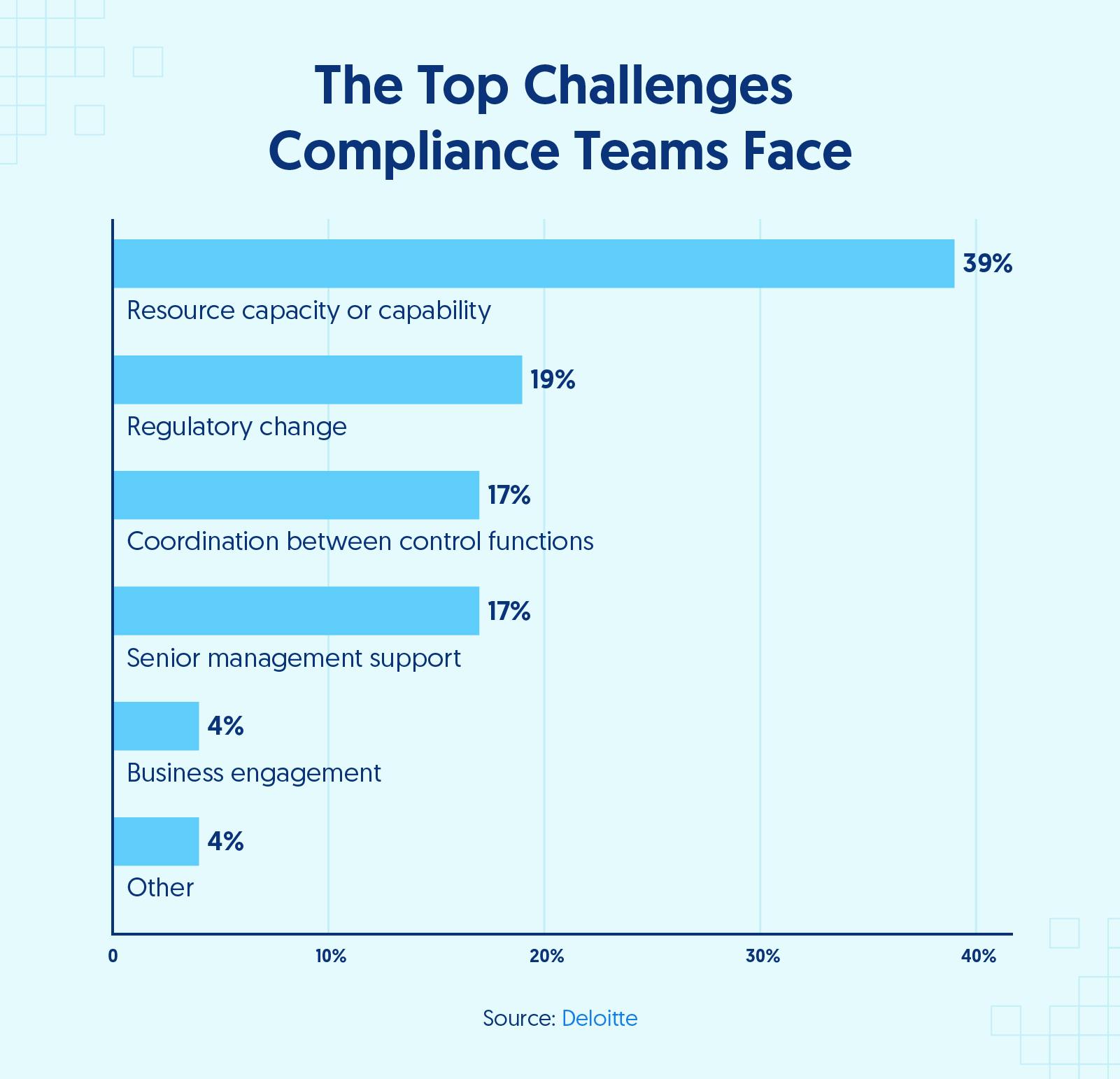Why Regulatory Compliance is Key for Businesses of All Sizes
Regulatory compliance is often seen as a burden for businesses, but it is essential for avoiding legal issues, protecting your reputation, and staying competitive.
In today’s globalized economy, businesses of all sizes are subject to a wide range of regulations. These regulations can be complex and ever-changing, making it difficult for businesses to stay compliant.
Identifying the relevant regulations: The first step is to identify the regulations that apply to your business. This can be a complex process, but there are a number of resources available to help you.
Developing a compliance plan: Once you have identified the relevant regulations, you need to develop a compliance plan. This plan should outline the steps that you will take to comply with the regulations.
Training your employees: It is important to train your employees on the importance of regulatory compliance and the steps that they need to take to comply with the regulations.
Monitoring your compliance: It is important to monitor your compliance on an ongoing basis to ensure that you are in compliance with the regulations.
By taking these steps, businesses can reduce their risk of non-compliance and protect themselves from the potential consequences.
The Consequences of Non-Compliance
The consequences of non-compliance can be severe. Businesses that fail to comply with regulations can face fines, penalties, and even criminal charges. They may also lose their licenses to operate, or be barred from doing business with certain customers or partners.
Last but not least, non-compliance can damage a business’s reputation. Customers may be less likely to do business with a company that has a reputation for non-compliance. This can lead to lost sales and revenue.
According to a study by GlobalScape organizations spend $5.47 million on compliance compared to an average of $14.82 million for non-compliance and an average of $4 million in revenue are lost due a single non-compliant event.

Source: GlobalScape
Geopolitical Disruption: How Global Institutions Can Build Resilience
Geopolitical forces can pose a major challenge to global institutions, especially when laws and regulations shift quickly in response to countries’ foreign-policy stances. These institutions often have complex links between countries, making it difficult to disconnect rapidly from any given country, not least because of compliance requirements. In addition, the strategy function may lack routines for systematically analyzing and understanding geopolitical scenarios.
The Case of Russia
This was evident in the case of companies doing business in Russia or with Russian entities when the country invaded Ukraine in early 2022. These companies had to quickly translate the implications of the sanctions that many other countries imposed on Russia. In some cases, this led to outsize operational losses or regulatory fines.

Source: THE PAYPERS
How to Build Resilience
To build resilience against geopolitical disruption, global institutions need to do the following:
Develop predefined playbooks for handling similar geopolitical shocks. These playbooks should outline the steps that the institution will take to assess the situation, mitigate the risks, and recover from the disruption.
Systematically analyze and understand geopolitical scenarios. The strategy function should develop a process for identifying and assessing potential geopolitical risks. This process should include a review of the latest news and developments, as well as a consideration of the institution’s own exposure to these risks.
Build relationships with key stakeholders in the countries where they operate. These relationships can help the institution to understand the local political landscape and to build trust with regulators.
How to Ensure Regulatory Compliance in Key Emerging Markets
As financial services institutions look to expand into new areas, they are finding that compliance can be a major hurdle. This is especially true in areas where the technology, products and services, business dynamics, and customer expectations are evolving quickly.
One area where this is evident is in the development of environmental, social, and governance (ESG) offerings. Institutions that want to bring attractive ESG offerings to market need well-designed processes for product creation and maintenance. This includes ensuring that the factors used to construct ESG investment products are transparent and reflective of the investment objectives described in the prospectuses.
Compliance teams can play a key role in helping institutions to navigate the regulatory landscape for ESG offerings. They can provide insights on alignment of ESG factors with the declared investment objectives and regulatory guidance, as well as the processes for monitoring product performance and informing customers.
Cryptocurrency is another area where compliance is essential. As the cryptocurrency market continues to grow, financial services institutions are increasingly looking to offer cryptocurrency-related products and services. However, the cryptocurrency market is still in its early stages, and the regulatory landscape is evolving rapidly. This makes it important for financial services institutions to work closely with compliance teams to ensure that they are meeting their regulatory obligations.
Here are some of the specific ways that compliance teams can help institutions to develop cryptocurrency offerings:
- Provide guidance on the selection of cryptocurrency exchanges: Compliance teams can help institutions to select cryptocurrency exchanges that are compliant with regulatory requirements.
- Develop processes for monitoring cryptocurrency market volatility: Compliance teams can help institutions to develop processes for monitoring cryptocurrency market volatility and for ensuring that their cryptocurrency offerings are not exposed to excessive risk.
- Ensure that cryptocurrency disclosures are accurate and transparent: Compliance teams can help institutions to ensure that their cryptocurrency disclosures are accurate and transparent, and that they meet regulatory requirements.
By working closely with compliance teams, financial services institutions can develop cryptocurrency offerings that are both compliant and attractive to investors.
Automation will be Key in Business Compliance
The compliance industry is evolving, and new technologies and tools are being introduced to streamline and improve processes. As a result, businesses that take a proactive approach to compliance can save money and improve their security posture. Automation will play a pivotal role in ensuring business compliance in today’s complex and ever-evolving regulatory landscape. While compliance can be daunting for small businesses, automation offers an effective solution to streamline processes and reduce the risk of non-compliance.
Automating compliance processes offers significant advantages. Firstly, it saves time and money by eliminating manual procedures that are time-consuming and prone to errors. By automating these processes, businesses can free up their employees to focus on more important tasks, while minimizing the risk of costly mistakes.
Secondly, automation enhances a company’s compliance posture. By automating key processes, businesses can ensure consistent adherence to regulations. This not only helps to avoid hefty fines and penalties but also ensures the company’s reputation remains intact. Trust and credibility are crucial assets in today’s competitive business environment, and automation can play a significant role in maintaining them.
Moreover, automation facilitates effective risk management. By automating compliance processes, businesses can proactively identify and mitigate risks more efficiently. This allows for better protection against potential financial losses and reputational damage that can arise from non-compliance.

Source: Deloitte
In a Nutshell
In conclusion, regulatory compliance is vital for businesses of all sizes. It helps to avoid legal issues, protects the company’s reputation, and ensures competitiveness in a global market. While compliance can appear burdensome, automation offers a powerful solution to streamline processes and minimize the risk of non-compliance. By automating compliance procedures, businesses can save time and resources, enhance their compliance posture, and effectively manage risks.

